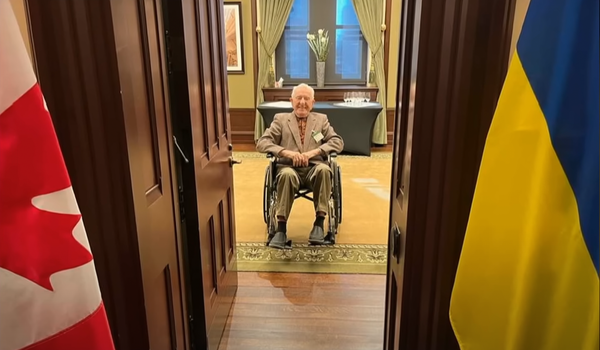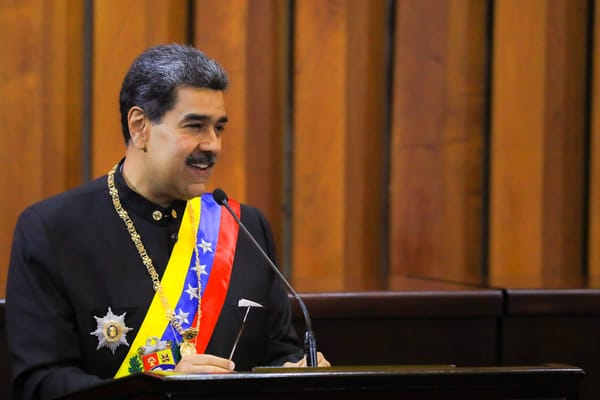By most indications, there is a good chance that Conservative Party Leader Pierre Poilievre will become the next prime minister of Canada. Ahead of the party’s convention in Quebec City in September 2023, major pollsters pointed to a healthy lead for the Conservatives.
On September 14, Abacus Data had the Conservatives leading the governing Liberal Party by 15 points, and disapproval in the Trudeau government up by four points. An earlier poll by Research Co. had the Conservatives up six points over the Liberals, representing a four point increase from the same pollster’s survey in February.
More recently, on September 19, Nanos also had the Conservatives leading the Liberals by six points, but also found that 55 per cent of Canadians want someone other than Trudeau to lead the Liberals into the next election. Indeed, news reports have pointed to growing signs of disquiet among the Liberal Party Caucus over Trudeau’s leadership, amid a nationwide affordability crisis and administrative fatigue.
Meanwhile, coming out of the party convention, Conservative delegates and party insiders boasted of renewed confidence and a sense of party unity that had been lacking under Poilievre’s predecessors, Andrew Scheer and Erin O’Toole.
There is a broad sense that this summer has marked a turning point in Poilievre’s electoral viability. While any Opposition leader should in theory be treated as a potential prime minister in waiting, the Conservative leader’s current trajectory makes critical scrutiny of his record and policy proposals more important than ever.
In this guide, we’ll recap all of The Maple’s coverage of Poilievre to date, and regularly update it in the months and years leading up to the next federal election, which is currently scheduled for October 2025.
Of course, this guide isn’t going to be able to cover everything. Poilievre’s career spans decades, and there are aspects of the Conservative leader’s policy agenda that we have not yet looked at in detail. However, our coverage to date has tended to focus on what he has presented as his strongest message: Fighting the affordability crisis.
But as our coverage shows, most of Poilievre’s proposals to address that issue amount to a clever rebranding of decades-old right-wing orthodoxy, and discredited trickle-down economics.
The Conservative Leadership Race
First, let’s recap Poilievre’s rise to the Conservative Party leadership last year. Throughout much of the leadership campaign, Poilievre’s path to victory seemed assured, as no rival came close to mobilizing competitive levels of support.
In an interview, Maple contributor Jeremy Appel, who attended Conservative leadership events in Calgary, Alberta in the spring of 2022, described a growing sense that so-called “moderate” conservatives represented a dying brand inside the party. Specifically, leadership contender Jean Charest, former premier of Quebec, never looked like a threat to Poilievre’s hard-right campaign.
Appel said he asked Charest whether the “moderate” constituency that made Charest premier of Quebec in 2003 exists within the federal Conservative Party of today. Charest responded by insisting that he could win in Quebec, a key electoral battleground (we’ll discuss this more below).
But, as Appel summarized, Charest’s campaign could be best described as a “vanity project rooted in 90s nostalgia." In the end, Charest placed a distant second behind Poilievre, winning just 16 per cent support. This was Poilievre's party now.
Poilievre’s victory on the back of folksy rhetoric railing against “elites” and “gatekeepers” quickly prompted words of warning from progressive watchers. While his policy proposals – like cutting “red tape,” slashing taxes and building more pipelines – amounted to run-of-the-mill Conservative policies, his messaging nonetheless spoke to real concerns and grievances in a newly effective way, particularly on issues like the housing crisis.
During Poilievre’s campaign, Daniel Westlake, a political studies professor at the University of Saskatchewan whose research focuses on populism, told The Maple that such “populist” messaging mirrored both global and provincial trends among right-wing political movements.
“We've seen this at the provincial level in Ontario with Doug Ford; there are bits and pieces of this in the way that Jason Kenney campaign[ed] in Alberta,” Westlake explained.
“It's not surprising to see a populism that we've seen globally and a populism that we've seen provincially kind of working its way into the federal Conservative Party.”
While Poilievre’s campaign tended to avoid talking specifically about social conservative issues like abortion and LGBTQ rights, he nonetheless lambasted so-called “woke folk” and invoked platitudes about making Canada the “freest nation on earth” and restoring “honour.” These words were widely seen as a dog whistle to a far-right support base, particularly among voters who switched from the Conservatives to the People’s Party of Canada at the 2021 election.
During the leadership race, polling by Abacus indicated that 78 per cent of PPC voters would consider voting for a Poilievre-led Conservative Party.
Phoney Populism?
Of course, the authenticity of Poilievre’s “populist” branding has been rigorously critiqued by the left. Writing for PressProgress, reporter Emily Leedham documented Poilievre’s long track record of supporting policies that harm working-class interests, such as American-style “right to work” legislation. Others pointed out that Poilievre is a career Parliamentarian — and a landlord — who has spent his entire adult life in and around politics, enjoying the very kind of publicly funded benefits that he now regularly rails against.
Last September, Adam D.K. King, author of The Maple’s Class Struggle newsletter, argued that Poilievre’s rhetoric against the central bank — which follows a similar trend set by other right-wing politicians around the world — indicates a lack of understanding about the institution’s real problems, and a repackaging of discredited “trickle down” economics.
King wrote:
“If you connect all the dots, Poilievre’s position seems to be that [interest] rate hikes are necessary but only because of the profligate actions of the Bank and federal government. This begs the question: What would a Pierre Poilievre Conservative government have hypothetically done during a [COVID-19] global health emergency necessitating intentional unemployment? I have a couple of guesses, and they don’t involve making sure workers have income while they protect themselves from the virus.”
King added:
“We should all be furious at the Bank of Canada for pursuing price stability without regard for its effect on employment. The risk, however, is that our anger is insufficiently distinguished from that of people like Poilievre. He’s angry, but for very different reasons.”
Jen Hassum, executive director of the Broadbent Institute (named after former NDP leader Ed Broadbent), articulated similar concerns about Poilievre’s ability to effectively identify real grievances but to address them with false diagnoses and solutions. In an interview with The Maple back in February, Hassum argued that progressives need to understand that through his messaging, Poilievre is drawing together a coalition of support that includes some sections of traditionally left-leaning constituencies.
A Steady Climb
When he first assumed leadership of the Conservatives in September 2022, Poilievre had challenges to overcome. Polling last summer showed that despite the Conservative Party leading in polls, Poilievre’s initial personal approval ratings as leader were lower than either of his two predecessors.
According to Angus Reid, 51 per cent viewed him unfavourably or very unfavourably, with less than one in five holding a “very favourable” view. However, at the time, University of British Columbia professor emeritus Richard Johnston told The Maple that low personal favourability ratings wouldn’t necessarily harm Poilievre’s chances of winning an election.
“He's benefiting from the fact that this is an aging [Liberal] government that in its own right is getting pretty low approval ratings,” Johnston explained. “In a climate that's now quite polarized, particularly between the biggest parties, there's no longer a simple translation of leader popularity into electoral success.”
By March this year, however, the Conservatives’ lead over the Liberals had shrunk considerably down to just two points, a statistical tie.
The Conservative Party Convention
Nonetheless, by the time the party’s convention rolled around a year later, momentum appeared to be on Poilievre’s side. His party seemed keen to sustain that glossy image of success in part by denying entry to journalists from outlets — including The Maple — that have reported critically on the Conservatives.
Despite efforts to keep out Nora Loreto, who attended the convention on assignment for The Maple, she was able to speak with party delegates who conveyed a palpable sense of excitement about Poilievre’s leadership.
Edward Helder, a longtime Conservative Party member, told The Maple: “[Poilievre] has to learn to ignore the mainstream press and not pretend to be something that he isn’t.”
Quebec City resident and delegate for the riding of Beauport-Limoilou, Marc-Antoine Dumas, similarly argued that the party and Poilievre need to “stay true” to themselves, adding: “People will respond to a true message that is consistent. Mr. Poilievre is not one to switch opinions; if he stays true to himself, he will connect with voters.”
For all this excitement, however, Loreto identified some key contradictions in the policy motions that Conservative delegates passed at the convention.
In particular, these tensions centred around the Conservatives’ purported beliefs in the freedom of individuals and smaller government, versus motions that called for government interventions to drastically increase military spending, ban “ideological” training programs among private employers, and ban gender-affirming healthcare for trans youth.
The latter policy motion in particular prompted one delegate to accuse her own party of hypocrisy. Dr. Lisa Bonang, a family physician from Central Nova, said: “This policy stands against the values of our party to embrace freedom and bodily autonomy. A vote for this is a vote against what you say you are all for and is pure hypocrisy.”
The main talking point of the convention, however, was a pledge to fight the affordability crisis with “powerful paycheques” and lower taxes. But, Loreto explained, this catchy rhetoric was matched with very few ideas that would actually address the crisis.
Loreto noted: “This language might resonate well as a set of slogans, but slogans won’t be enough to address the deepening affordability crisis in Canada. Eventually, people will need to know how their paycheques are going to become more powerful.”
Then there is the matter of making gains in Quebec. While Poilievre could still win government without a major growth of his vote share in that province, the Conservative leader’s road to victory would be more challenging without it.
As things currently stand and despite certain strengths Poilievre personally wields in pitching his message to Quebecois voters, Loreto argued the party as a whole is in a poor position to substantially grow its support in Quebec.
“The party is too far away from where Quebecers are at for the party to have an easy road to victory, especially on social questions and climate change,” Loreto explained.







